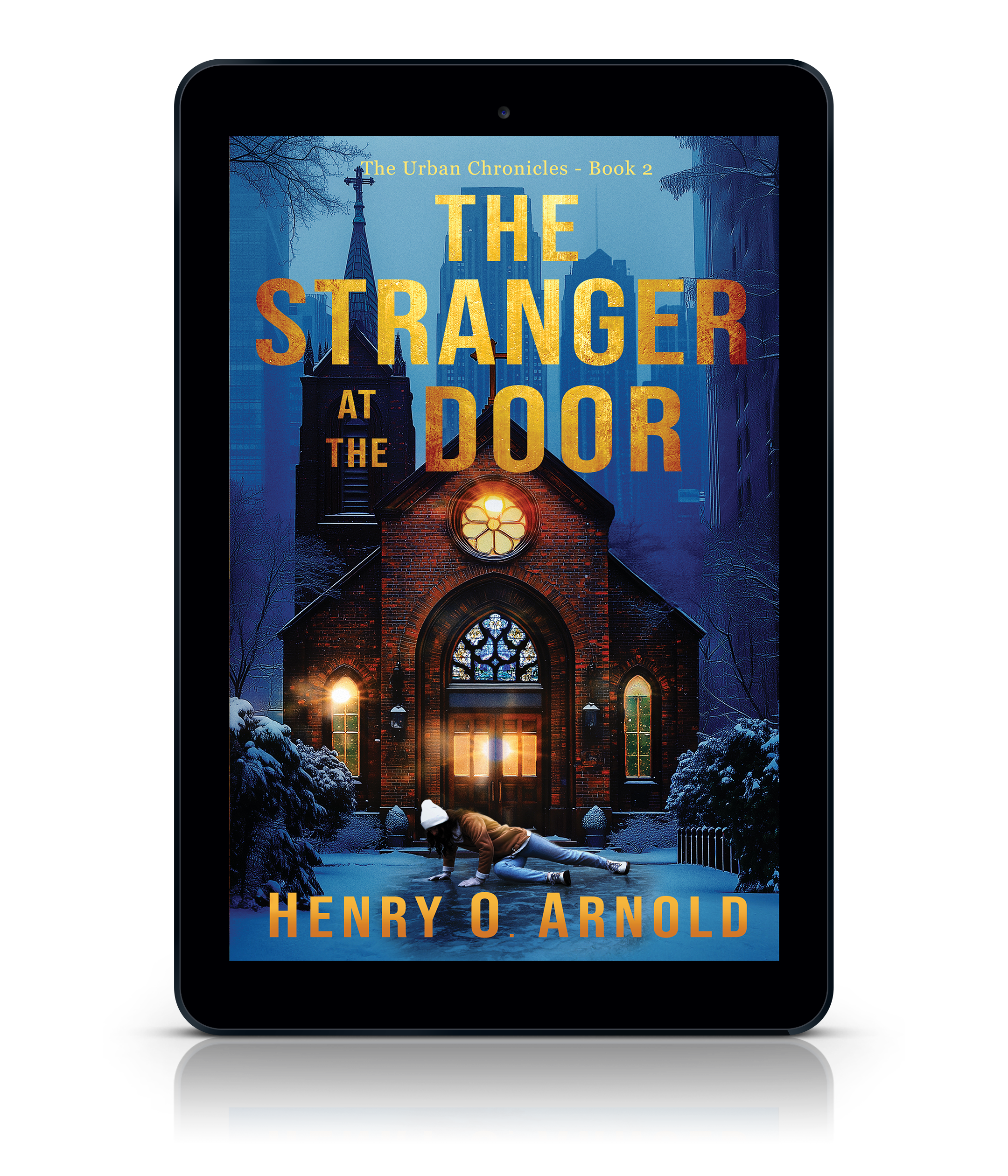In a recent The New Yorker article on the use of suspense in literature this phrase, “preaching to the nerves,” jumped out at me. It was used by the highbrow critics in the nineteenth century to describe the “tawdry” and “ignoble” aspects of the rise in modern fiction of the time that appealed more to “provoking curiosity and excitement, rather than offering aesthetic fulfillment.” With my new novel, The Stranger at the Door, I plead guilty for preaching to the nerves, though I might have snuck in some “aesthetic fulfilment” along the way.
The main character, Maxwell Crane, has blood on his hands. The Mercy Seat church may be celebrating Christmas, but Pastor Maxwell takes no pleasure in the season. He is haunted by the accidental fatality of a Hell’s Canyon gang leader and the mother who grieves the loss of her son long after Maxwell took justice into his own hands.
When a mysterious young woman appears at the doorsteps of the church, Maxwell and his family are eager to take in the stranger, but this act of kindness leads to unexpected and dire consequences. The Crane sisters and the young woman go missing, their whereabouts unknown, until Maxwell receives a call informing him the three girls have been abducted by a ruthless cartel. The family gathers. Close friends are summoned. Plans are made, but the strategy for rescue is fraught with danger, one that could cost more in human life than in treasure.
Maxwell is confused and hurt by what he perceives as God piling more agonizing weight upon his already broken soul with the kidnapping of his daughters, but he cannot help crying out to God. He cannot help calling out, demanding that God pay attention. Don’t you see what is happening here? Don’t you care? Who else could Maxwell call upon? Who else might protect and save? His daughters might be lost to him, but are they lost to God? Maxwell would rush into the gates of hell to rescue his daughters, but would he get there in time?
E.M. Forester wrote in his work Aspects of the Novel, that every work of fiction, no matter how lofty, must be built around a story… “and that story must have only one merit: that of making the audience want to know what happens next.” If you’re looking for a good novel to “preach to your nerves,” may I humbly suggest The Stranger at the Door.





